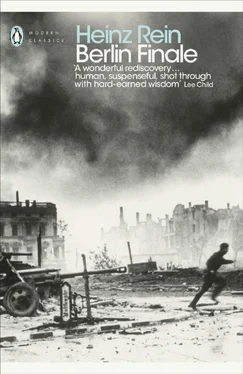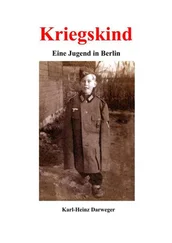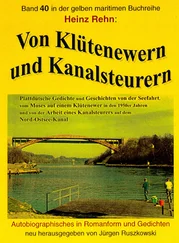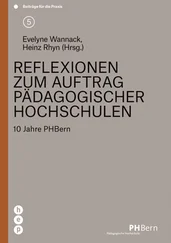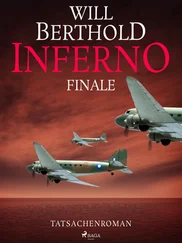Lassehn shakes his head. ‘No, Doctor, how could I,’ he replies. ‘In the past Hitler’s Germany always struck me, in spite of everything, as being an orderly state…’
‘…built on unscrupulous betrayal and held together by the violent application of force,’ says Dr Böttcher.
‘Certainly,’ admits Lassehn, ‘but if that order should fall, when all the repressed instincts and passions are liberated, only chaos can rule.’
‘There is no doubt,’ Dr Böttcher says thoughtfully as if weighing every word, ‘that our war is driving us into the greatest disaster of our history, but then again we do have some experience with losing world wars, Mr Lassehn. After the war of 1918 an army of millions returned home, men who had known nothing for years but trenches and army brothels, murderous hand-to-hand combat and the satisfaction of only the most primitive needs, who had been horrifically degraded in a spiritual and physical respect and who had only atavistic memories of a normal life. These men, and among them there were many hundreds of thousands who had gone straight from the schoolroom to the battlefields, and who knew just as much or as little about life as you do today, returned home one day too, and a wave of coarseness and vulgarity, murder and violence ran through our country, but there were also forces there that ordered chaos and tamed the forces unleashed.’
‘The tamers were later overwhelmed by the tamed, my dear Doctor,’ Klose says. ‘Your fault…’
Dr Böttcher silences him with a sudden movement of his hand. ‘Let’s not judge our faults and yours for the umpteenth time, my dear Klose,’ he says. ‘What is important here is to make it clear to this young man – who has never believed anything, or had the opportunity to believe anything, and who seems to be refusing to believe anything in future as well because, quite unconsciously I have no doubt, he is still filled with Nazi terminology – that even after this war a new order will arise in Germany, not even though but because National Socialism will have disappeared.’
‘I cannot imagine, Doctor,’ Lassehn says dubiously, ‘that a way might lead into an orderly life, a life with cleanliness and freedom, music and love. What might the nature of that order be?’
‘We don’t yet know,’ Dr Böttcher replies, ‘in the end it will depend on the final phase of the war. But to return to the starting points of our conversation: even then there were many people, mostly from the middle class, who simply couldn’t imagine Germany losing the war, because it would mean the downfall of their world. Well, the world did not collapse, all that collapsed was a certain world of the bourgeoisie.’
‘But it only seemed that way,’ Wiegand suggests, ‘the capitalist and agrarian ruling class only disappeared from view, they went on living, modestly at first, reticently, they were barely apparent, but in silence they carefully preserved all of their spiritual and material components, before gradually deploying them again with all their full weight, since they had been left astonishingly untouched, and in the end they became the basis for National Socialism. This war, whose final act we hope we are living through now, is basically only a continuation of the First World War, which left Germany floored in a material sense, but also politically untouched.’
‘That is the great accusation to be levelled against the victors of Versailles: they did little to encourage democracy in Germany,’ Dr Böttcher says, nodding, ‘with their politics they created a situation whereby the politically immature German people confused cause and effect, some of them rejected democracy, some didn’t know how to use it, and slowly but surely they slid into the arms of militarism and nationalism in its various guises. That must be prevented this time, and I am completely clear that it will be possible only with the help of our present supposed friends.’
‘But we must be clear about one thing,’ Wiegand says when Dr Böttcher pauses briefly. ‘The soldiers who will return this time are not soldiers like the ones after the First World War, coarsened, degraded, disappointed, embittered and weary. These soldiers have passed through the school of the so-called National Socialist philosophy, in their awareness of belonging to a master race they have committed unimaginable acts of cruelty and laid whole nations waste, they have fully enforced the maxim that might is always right. If soldiers in the First World War to some extent killed their uniformed opponents in self-defence, man against man, the soldier of this war, in the awareness and belief in his racial superiority and his people’s claim to superiority, murdered not only the soldiers on the other side but also countless people of every age and sex and robbed them of their possessions. This spiritual attitude will not be removed without further ado by military defeat. It will go on affecting people for a long time to come, at least until they learn to see that it was not strategic errors that led to their Führer’s defeat, that it was not war that was an error, but that the whole so-called movement was a crime in itself.’
‘You speak of the coming defeat as if it is an inevitable fact, gentlemen,’ Lassehn says. ‘Don’t get me wrong, I don’t hope for victory, because I am clear that in the event of our victory we could develop into a dangerous race of human beasts of prey, but just wish to establish that…’
‘Good God, Joachim,’ Klose interrupts him almost angrily, ‘the Soviets are at the Oder, ready for their last leap against Berlin, on the other side the British and the Americans have crossed the Siegfried Line and the Rhine, and even reached the Elbe in places, and you still have doubts?’
‘I don’t even consider the territorial element to be the crucial one,’ Dr Böttcher says, commanding their attention with a gesture, ‘what is of far greater moment is our absolute material inferiority. Are you not aware that the famous anti-tank grenade is only a surrogate because we lack heavy anti-tank guns? Are you not aware that the Luftwaffe is often unable to take off for want of fuel? Have you not seen that the American and British Air Forces can bomb any point they wish to hit unhindered and at any time of day or night? Are you not familiar with the fact that the very last reserves, half-children and elderly invalids, are being sent to the front as part of the Volkssturm? Do you not see these ridiculous anti-tank barriers in the streets of Berlin, which are supposed to stop the enemy, who have swept over the Atlantic Wall, the Siegfried Line and all the great rivers as if they were playthings?’
‘He believes in the miracle weapon,’ Klose says with a smile.
‘You are not far off, Mr Klose,’ says Lassehn. ‘I don’t believe in it, but I do fear that those people at the top are preparing something terrible. There are so many rumours about whether it is the V-3 or some kind of weapon of desperation, gas shells or bacteriological war…’
‘Good God, Joachim, music student,’ Klose laughs, ‘you’re going to fall for that one? Yes, if they had any of those things in the making…’
‘You shouldn’t laugh, Klose,’ Wiegand says seriously. ‘I admit quite openly that there are moments when Goebbels’ and Fritzsche’s stubborn confidence strangles me like a garrotte.’
Dr Böttcher nods.
‘A few months ago Goebbels wrote the following sentences in Reich : “We recently saw modern German weapons at the sight of which our hearts stood still for a moment.” That sentence has, I admit quite openly, pursued me into my dreams.’
‘It isn’t easy, I would even say that it is very difficult, to put oneself in your spiritual state,’ Dr Böttcher says. ‘You have neither a firm spiritual basis, nor are you rooted in another vision of life, you reject National Socialism, the state-prescribed and compulsorily enforced philosophy, but have no other, because you have never encountered one. Do you believe in God?’
Читать дальше
